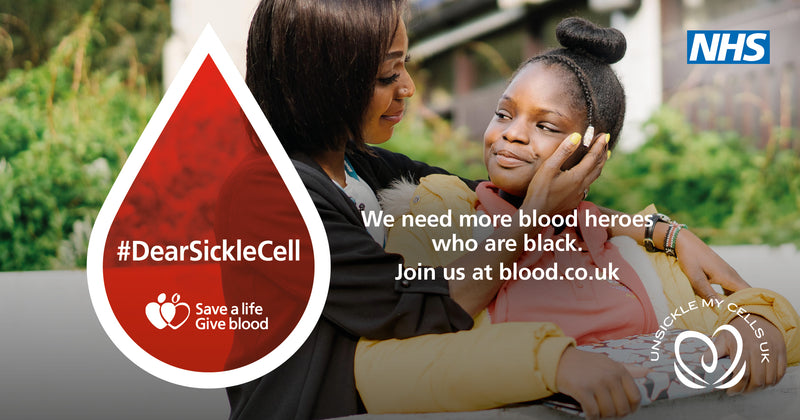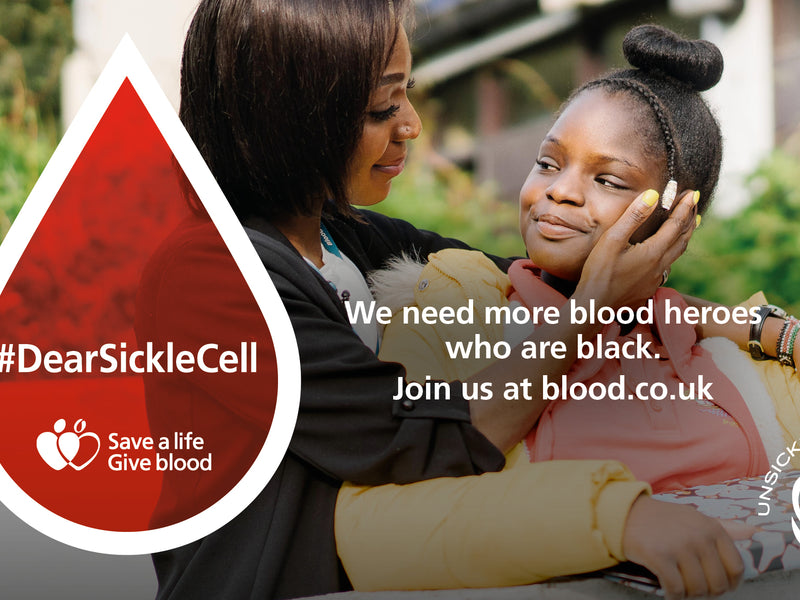The NHS is in a blood stock crisis.
They recently announced their first ever ‘amber alert’ over blood supplies, with only two or three days’ worth of blood stock available for transfusions, surgeries, and other life-saving treatments.
And for us here at SOUL CAP, it’s an issue that hits close to home.
Around 15,000 people in the UK are living with sickle cell disorder — a disease that often requires regular blood transfusions to keep people healthy.
It’s a condition that affects the communities we serve, and the community we work in. Which is why it’s now more important than ever to donate blood if you can.
What is sickle cell?
Sickle cell is the name of a group of health conditions that affect the red blood cells. You’ve probably heard of ‘sickle cell anaemia’, which is the most serious type of these conditions.
The name comes from the unusual shape that your red blood cells take if you have the disorder — a half-moon shape that looks a bit like a sickle.
This unusual shape can cause serious problems for people with the condition. Sickle-shaped blood cells don’t live as long as healthy blood cells, and their shape can cause blood cells to stick together and block blood vessels — leading to severe pain, an increased risk of infections, and a lack of oxygen throughout the body (anaemia).
It’s a serious disease and a lifelong health condition. And it usually involves a lifetime of continual treatment and being extra careful with your health.
In some cases, people with sickle cell need regular blood transfusions, or emergency blood transfusions if they develop severe anaemia.

Who does it affect?
Sickle cell is a hereditary condition that’s passed down from your parents.
But that doesn’t mean it affects everyone equally:
In the UK, sickle cell is most commonly seen in people from African and Caribbean backgrounds, affecting 1 in 4 West Africans and 1 in 10 Afro-Caribbeans.
That’s a sizeable proportion of people from those backgrounds — which makes it a critical issue for those communities to be aware of.
But it’s also an issue that’s close to us at SOUL CAP:
Our co-founder, Toks, has been living with sickle cell anaemia all his life, receiving regular blood transfusions to help him manage his condition and stay healthy.
So when we say that the blood crisis affects different communities, we mean it — in the swim community, the Black community, and the SOUL CAP community itself.
What does sickle cell mean for swimmers?
People with sickle cell usually avoid swimming because it can trigger a sickle cell crisis — episodes of severe pain caused by blockages in the small blood vessels.
Between the strain of exercise and the sudden change of temperature in cold water, swimming has a direct effect on your blood flow and breathing, which can increase the chance of experiencing a crisis.
So if you’re a swimmer with sickle cell, you need to take extra care in the water:
- Limit your time swimming, and pay attention to your body.
- Dry yourself thoroughly when you get out of the water.
- Take a warm shower after your swim.
- And stay hydrated with plenty of fluids — especially warm water.
How you can help:
Some people with sickle cell need regular blood transfusions every 4 to 6 weeks.
And without the help of regular blood donors, they won’t be able to get the transfusions they need.
It’s a condition that affects some communities more than others. But it’s also a condition where some communities are more able to help than others — with Black donors being ten times more likely to have a blood type that’s needed to treat the 15,000 people living with sickle cell in the UK today.
The recent NHS blood stock crisis has been a grave reminder of just how essential blood donors are. And hopefully, the huge media coverage has led to a new wave of registered donors signing up.
So if you’re eligible to donate blood and you’re looking to help — and especially if you have Black heritage — you can find out what’s involved and become a registered donor at the official NHS website, Blood.co.uk.



